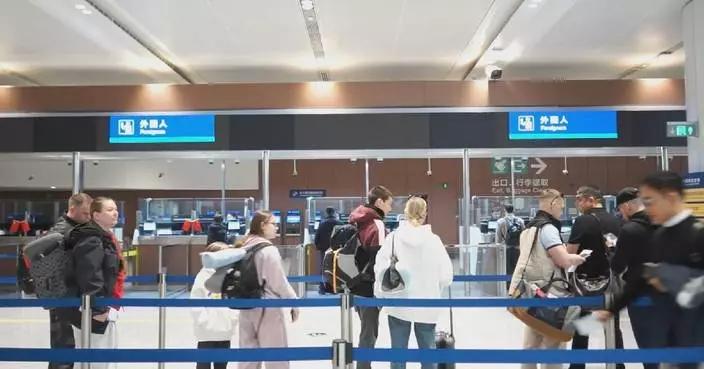Two survivors who narrowly escaped the devastating 7.9-magnitude earthquake that struck Myanmar on Friday have recounted the harrowing moments when the tremors tore through the region. The earthquake, which struck central Myanmar at around 12:50 local time (06:20 GMT) on Friday, has left at least 1,700 people dead, 3,400 injured, and 300 missing, according to Myanmar's State Administration Council. "We were having lunch at a restaurant near a highway about 120 kilometers south of Mandalay whe the earthquake happened. The tremors escalated into a violent quake rapidly and we can feel the ground was shaking intensely. I immediately realized it was an earthquake. In the past few months, we experienced two or three small tremors in Yangon. Everyone in the restaurant rushed outside in panic. The shelves inside the restaurant collapsed, and it was pure chaos. Later, we lost phone and internet signals. We assumed it was because power facilities were damaged. We continued heading toward Mandalay, and we saw cracks all along the highway, parts of the road had bucklings with stone railings collapsed. Many pagodas and buildings along the road either cracked, tilted, or collapsed," said Koffel Deng, who works as the managing director of Myanmar Hyspot Electric Technologies Company Limited in the country. "When we returned to Nay Pyi Taw, the city was nothing close to what it was when we left in the morning. There was a city-wide blackout, and crowds of residents were seen staying outside with candles out of fear for aftershocks. Fortunately, a local friend arranged for us to stay in a monastery where we had some food and water, and we spent the night outdoors," he said. Deng also called on international communities for more aid to the quake-hit country, especially relief supplies and economic support.
"There's an urgent need for assistance. Many rescue teams from China have already arrived, but I hope more people and organizations can provide relief supplies and economic support, especially to those affected in northern Myanmar and around Mandalay," he said. Dong Baozhi, deputy director of Yunnan Province Commercial Representative Office in Myanmar, said the earthquake has caused severe damage to local infrastructure, affecting water and power supplies, communications service, and public transport.
"I'm currently in Nay Pyi Taw, Myanmar. I was here on March 28 when the earthquake occurred. The damage has been mainly inflicted on infrastructure, including power and communications facilities and hospitals. Right now, we're without power, water, and phone service, and even some roads have been severely damaged. In some residential complexes and parks, especially mid-rise buildings of about four to six stories, there have been casualties. The situation is more serious in the northern Nay Pyi Taw, where hospitals and residential complexes have suffered heavy damage," said Dong. As of Monday morning, 36 aftershocks, with magnitudes ranging from 2.8 to 7.5, have been recorded following the earthquake, said Myanmar's Department of Meteorology and Hydrology on Monday.

Survivors recall terrifying moments of Myanmar earthquake



















































